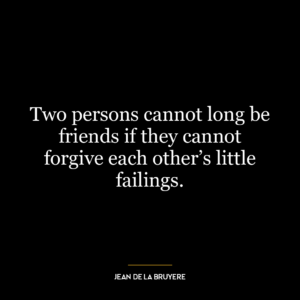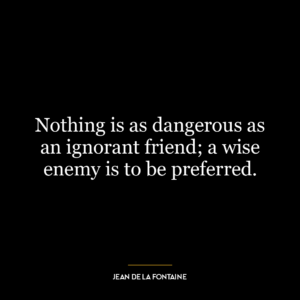This quote is a profound reflection on human relationships, particularly friendships. It suggests that a friend whose expectations or desires we cannot meet is better off as an enemy. This is because the inability to satisfy a friend’s hopes can often lead to disappointment, resentment, or a sense of failure, which can strain the relationship. This strain might be less stressful if the person were an enemy, as we generally do not feel obliged to meet an enemy’s expectations.
The quote also underscores the often-unspoken expectations that exist within friendships. We often hope that our friends will support us, understand us, and help us achieve our goals. When these hopes are not met, it can lead to feelings of betrayal and hurt.
In today’s world, this quote can be applied in various contexts, particularly in our digital age where friendships can be formed and dissolved quickly. It reminds us to manage our expectations in relationships and understand that not all friendships will meet all our needs. It encourages us to appreciate our friends for who they are and what they can offer, rather than what we want them to be.
From a personal development perspective, the quote can serve as a reminder to be honest with ourselves about our capabilities and limitations in meeting the expectations of others. It encourages us to communicate openly with our friends about what we can and cannot do for them. This can lead to healthier, more realistic relationships. It also suggests that it’s okay to let go of friendships that demand more than we can give, instead of keeping them and fostering resentment.















